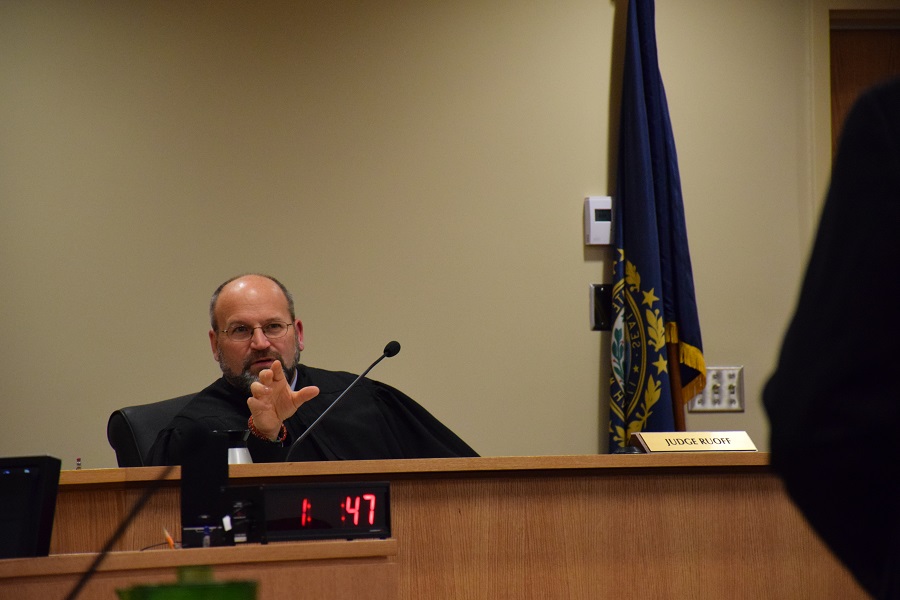By GARRY RAYNO, InDepthNH.org
CONCORD — Superior Court Judge David Ruoff has stayed the latest education funding case scheduled to go to trial next month until he rules on two other related issues.
In his order issued Wednesday, Ruoff said he would delay the trial in Rand and other residential and property taxpayers suit against the state claiming the state funding mechanism is unconstitutional and inadequate to cover the cost of an adequate education until he rules on the ConVal and other school districts suit claiming the state does not come close to paying for the cost of an adequate education as required by the state Supreme Court’s original Claremont education decision and a summary judgement on the constitutionality of the Statewide Education Property Tax.
Ruoff said the reason is twofold for his delaying the Rand trial: he may not finish the orders in the ConVal suit or the summary judgement decision on the constitutionality of the state’s method of assessing the SWEPT, and the parties should not have to accrue unnecessary expenses in preparing for a trial that may not take place as scheduled.
“The Court also notes that the State has recently filed a Motion for Summary Judgment on the other issues in this case – which will not be resolved by the time of trial,” Ruoff writes.
The Attorney General filed a motion last week seeking a summary judgment in the issue of what constitutes an adequate education and how the state is meeting its requirement to fund it, but the plaintiffs are expected to object to the motion because they disagree with the state on crucial facts.
The plaintiffs in Rand contend, as did those bringing the ConVal suit, that the state requires school districts to provide many services it does not include in its definition of an adequate education such as transportation, school nurses, school facilities and their maintenance and capital costs.
The state argues the Supreme Court decision does not forbid the legislature from requiring local school districts to dedicate additional resources for schools or educational programs beyond a constitutionally adequate education.
The state argues it does not have to pay those costs, but the plaintiffs argue the requirements are still needed to adequately educate a student and the state should be paying those costs, not relying on local property taxes to do so with widely varying rates.
Instead the constitution requires state taxes to be proportional and reasonable, the plaintiffs say, which local property taxes are not.
In its filing the state claims the plaintiffs bear the burden of proof that these additional costs should be included in an adequate education, but has failed to do so.
“The plaintiffs premise their adequacy claim on a theory that Part II, Article 83 requires the State to provide school districts with funding in an amount equal to or greater than the average total amount school districts spend per pupil statewide. Because this theory fails both as a matter of law and undisputed fact, the plaintiffs cannot meet their heavy burden of demonstrating that the current funding formula is in clear and substantial conflict with Part II, Article 83,” Attorney General John Formella wrote in the state’s filing.
Those contentions would be issues determined in the trial which has now been postponed.
Ruoff said last month he believes the case is ripe for a summary judgment on the issue of the statewide property tax.
But the judge said he did not know if he would rule first on the summary judgment issue or the ConVal case that the state fails to pay for the true cost of an adequate education proposed to be about $10,000 per student, while the state currently pays just over $4,000 per student.
Ruoff earlier said he would rule on one of the issues in about 60 days, which would be in the first week or two of September.
But his order Wednesday indicates he will rule on the merits of the ConVal case and make a determination on the constitutionality of the statewide education property tax before considering a trial on the remaining issues in the Rand suit.
Garry Rayno may be reached at garry.rayno@yahoo.com.





